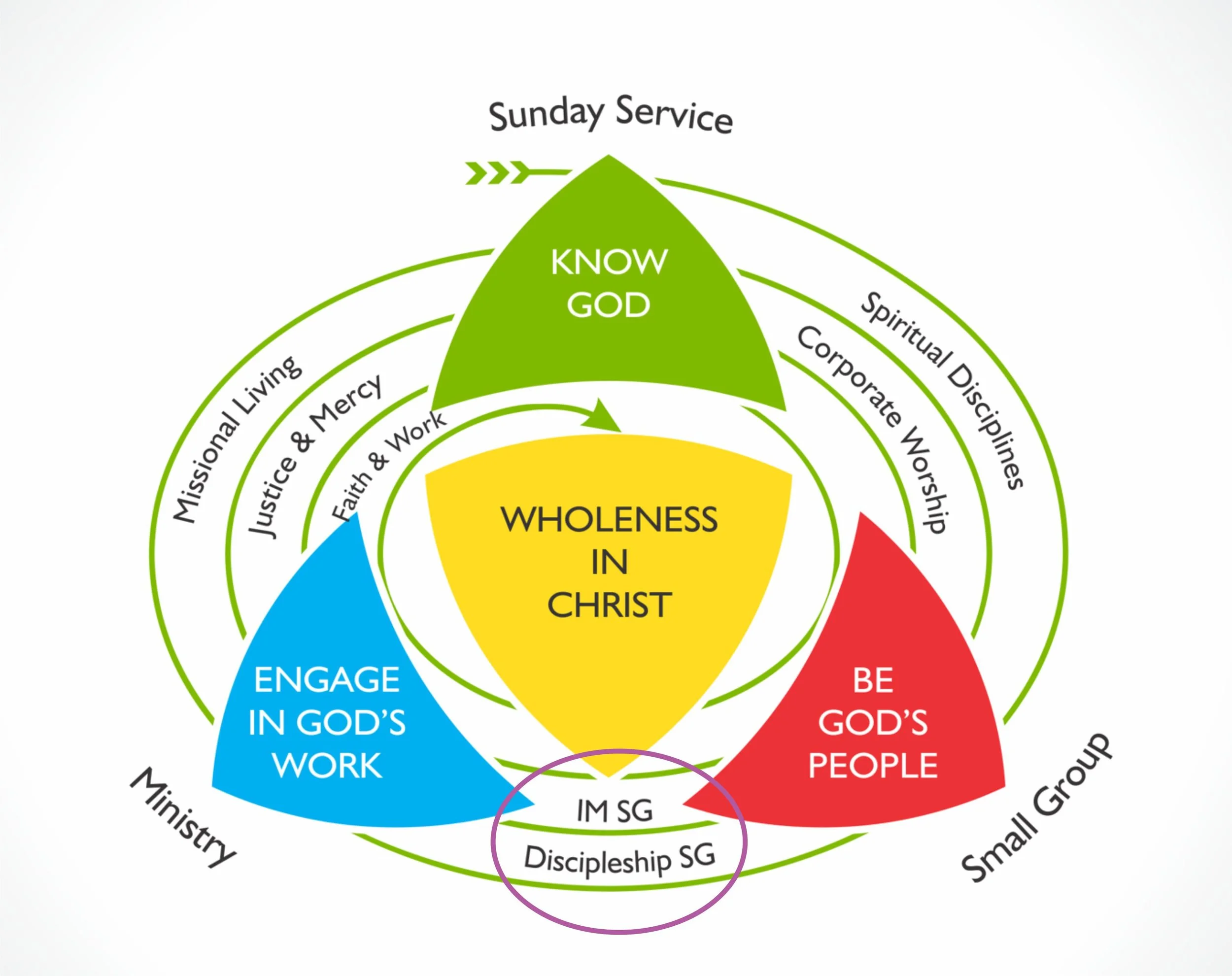WHY DISCIPLESHIP GROUPS?
Dear Church,
For the past few weeks, we have been encouraging everyone to join a Summer Discipleship Group at New City.
Prayer Training Bootcamp will meet every Thursday evening from May 4 through June 29 (nine sessions), and Identity, Gender, & the Gospel will meet every Wednesday evening from May 17 through June 28 (seven sessions). If you haven’t already, SIGN UP for one today!
But what exactly are discipleship groups? And how are they different from our regular Intermission Groups?
To answer those questions, we need to first ask a bigger question: Why does the church exist? What is its purpose?
Many would say it’s evangelism or missions. Some would say it’s the public worship of God. Others would say it’s to care for the poor and the vulnerable. Still others would argue that it is to promote and protect a thriving Christian community.
These are all important enterprises that all churches should be engaged in.
But the activity that undergirds and makes possible all of these purposes is described by the Lord Jesus in one of his final addresses to his disciples before his ascension to the Father. In Matthew 28, Jesus calls his disciples to go and make disciples of all nations, baptizing them and teaching them to obey all that Christ has commanded. This is often referred to as “the Great Commission,” and discipleship features centrally in Christ’s mission for his church. Whatever we do, discipleship, therefore, must feature centrally to our mission as a church.
Let’s take the examples above. You can’t evangelize without providing discipleship; evangelism is really the first phase of discipleship. Public worship both gives expression to discipleship and strengthens a people who are being discipled. Caring for the poor and the vulnerable without discipleship will turn it into another self-engrossed human venture.
If the church ceases to do discipleship, the church will cease to be the church.
So, that begs the question, how exactly does a church make faithful disciples of Christ? This is a big question, one that your pastors and elders have worked hard to answer through much prayer, study, and discussion.
Let me share three preliminary convictions that led to the development of our discipleship model.
CONVICTION #1:
We understand that discipleship is a whole-person enterprise, involving the entirety of a person, as the Apostle Paul writes in 1 Thessalonians 5:23, “Now may the God of peace himself sanctify you completely, and may your whole spirit and soul and body be kept blameless at the coming of our Lord Jesus Christ.”
True Christian discipleship is much more than just data transfer. Good doctrine and head knowledge is useless—potentially even harmful (1 Cor 8:1)—if it does not touch and transform the heart of a person.
CONVICTION #2:
We also recognized that there are both vertical and horizontal dimensions to the process of being transformed into the image of Christ, as the Apostle John writes in 1 John 4:20, “If anyone says, ‘I love God,’ and hates his brother, he is a liar; for he who does not love his brother whom he has seen cannot love God whom he has not seen.”
The best, most natural, most effective spiritual growth happens in interpersonal connections in community. And that is because we are created in the image of the Triune God who is essentially relational.
CONVICTION #3:
Finally, we observed that people grow by doing. And the fruit of the Spirit is expressed through active service, as the Apostle James writes in James 2:22, “faith was completed by his works.”
The Apostle Paul asserts in no uncertain terms that we are saved only “by grace, through faith, … not from works, so that no one can boast” (Eph 2:8-9). But he immediately follows this glorious truth with another glorious truth: “For we are his workmanship, created in Christ Jesus for good works, which God prepared ahead of time for us to do.”
Make no mistake, if we don’t use our gifts to serve God and others in a local church, it’s not just bad for the church, it’s bad for us. A local church isn’t the only place where we can or should use our gifts, of course, but we are talking here about the church.
These three convictions led to the following, a visual illustration of the discipleship model that we have sought to implement over the years:
In short, we are called to bring the whole gospel to Hamilton until Hamilton is whole by knowing God, being God’s people, and engaging in God’s Work. By faithfully doing this in the power of the Holy Spirit, we believe that God will bring us closer and closer to wholeness in Christ.
So, where do summer discipleship groups fit in our discipleship model? As you can see in the image, it plays a similar role to Intermission groups in that it bridges “being God’s people” with “engaging in God’s work.” It is a place where we learn to be faithful people of God as we learn what it means to live in service of God in a rapidly changing culture. Both Intermission and Discipleship groups feature scriptural learning, prayer, and mutual encouragement as essential parts of whole-person discipleship.
So, what’s the difference between the two?
Intermission Groups provide a natural progression from merely attending Sunday morning services to becoming more involved in the life of the church, because they provide a friendly, low-key environment in which any groupings of people can discuss the Sunday sermons or work through another set study. We pray, we have fun, and help each other apply Scriptural principles to one another’s lives. These groups normally run for half the year (23-26 sessions) in order to facilitate meaningful and lasting friendships.
Discipleship groups, on the other hand, can be thought of as shorter-term (6 to 9 sessions) intensives, or crash courses, that specialize in a particular aspect of the Christian life. We have offered discipleship groups that teach people how to read and study the Bible, how to pray, how to understand the big story of the Bible, how to evangelize, how to become Christians, how to do mercy work, how to engage in missions, how to build healthy, Christ-centred marriages, etc.
Friends, we warmly invite you to join us as we pursue Christ’s call “to make disciples of all nations” as we cling to his powerful presence. Don’t miss the many opportunities to grow together with us in the grace of God. May the Lord bless you and impact you powerfully you as you join us in discipleship!





